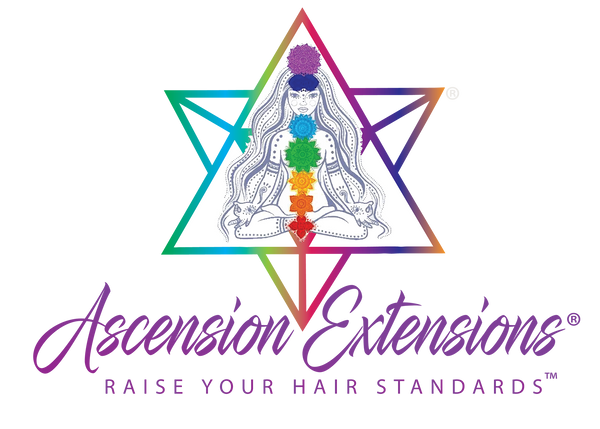Indian collection
Hair texture, especially when discussing Indian hair, can be classified based on the shape and feel of the hair strands. Indian hair is renowned for its versatility, thickness, and high quality, making it popular in the hair extension and wig market. Let's break down the differences between straight, wavy, and coarse wavy textures:
-
Straight: Indian hair with a straight texture has no natural curl or wave pattern. It lies flat from the root to the tip and is characterized by its sleekness and silkiness. Straight Indian hair can range from fine to thick, but it typically has a smooth texture that reflects light well, giving it a glossy appearance. This type of hair is generally easy to manage and can be styled in a variety of ways, though it might not hold curls as well without the help of styling products.
-
Loose Wave: Loose Wavy Indian hair has a natural slight curl pattern that gives it body and volume. The waves can range from loose to more defined, but they're typically soft and not too tight. Wavy hair strikes a balance between straight and curly, offering a versatile look that can be styled to appear either more straight or curly depending on the desired outcome. It tends to have a bit more texture than straight hair, which allows it to hold styles well. Wavy Indian hair is often considered highly desirable for its balance of manageability and volume.
-
Deep Wavy: Our Deep wavy Indian hair combines the characteristics of wavy hair with a thicker strand diameter and sometimes coarse, making the hair feel fuller and denser. The term "coarse" refers to the texture of the hair strand itself, which is wider or thicker compared to fine or medium textures. Coarse wavy hair has a more pronounced wave pattern and offers significant volume and body. Despite its thickness, it can be quite manageable and versatile, capable of holding styles well. However, it may require more moisture to maintain its health and sheen compared to finer hair textures.
Each hair texture has its unique qualities and requires different care routines to maintain its health and appearance. For instance, straight hair might need less frequent washing to prevent it from becoming too dry, while wavy and coarse wavy hair might benefit from regular hydration and conditioning treatments to keep the waves looking defined and vibrant.
Ethically Sourced Indian Hair Extensions
Indian hair extensions are popular around the world for their high quality. However, it's important to differentiate between ethically sourced extensions and those that are not. Here's a breakdown of ethically sourced Indian hair extensions and the benefits of investing in human hair extensions:
-
Temple Hair: A significant portion of ethically sourced Indian hair comes from temples. In a religious ritual known as "tonsuring," many Hindus voluntarily shave their heads as a form of devotion, particularly at temples like the Tirumala Venkateswara Temple in Andhra Pradesh. The temples then collect, sort, and auction the hair. The proceeds from these auctions are used to fund various charitable activities, educational institutions, hospitals, and community-based programs.
-
Transparent Supply Chain: Ethical suppliers maintain transparency in their sourcing and processing methods. This means buyers can trace back to the origin of the hair and ensure that it was willingly given without exploitation.
-
Fair Compensation: Ethical suppliers ensure that everyone involved in the sourcing, cleaning, and preparing of hair extensions is paid fairly and works in decent conditions.
-
Avoiding Child Labor and Exploitation: It's crucial to purchase hair from suppliers who strictly avoid using child labor or exploiting vulnerable individuals. Ethical providers have measures and checks in place to ensure that their operations are devoid of such practices.
Benefits of Investing in Human Hair Extensions:
-
Natural Look and Feel: Human hair extensions blend seamlessly with one's own hair, providing a natural look and feel. They move, shine, and behave like natural hair.
-
Durability: With proper care, human hair extensions can last a long time, often outlasting synthetic counterparts. This makes them a good investment in the long run.
-
Styling Versatility: Unlike synthetic extensions, human hair can be styled using heat tools like straighteners, curling irons, and blow dryers. This allows for greater versatility in achieving various hairstyles.
-
Better for Scalp Health: Human hair extensions generally provide better breathability, reducing the risk of scalp issues that can sometimes arise with synthetic options.
-
Color Customization: Human hair extensions can be dyed to match or complement your natural hair color, offering a level of customization not always achievable with synthetic hair.
-
Ethical Satisfaction: When you invest in ethically sourced hair extensions, you are supporting fair trade practices, ensuring that workers are treated fairly, and contributing to the welfare of communities.
In conclusion, while ethically sourced human hair extensions may come with a higher price tag than synthetic or non-ethically sourced alternatives, the quality, durability, and moral considerations make them a worthwhile investment for many consumers. Always do thorough research or consult with a reputable stylist to ensure you're making an informed choice.
